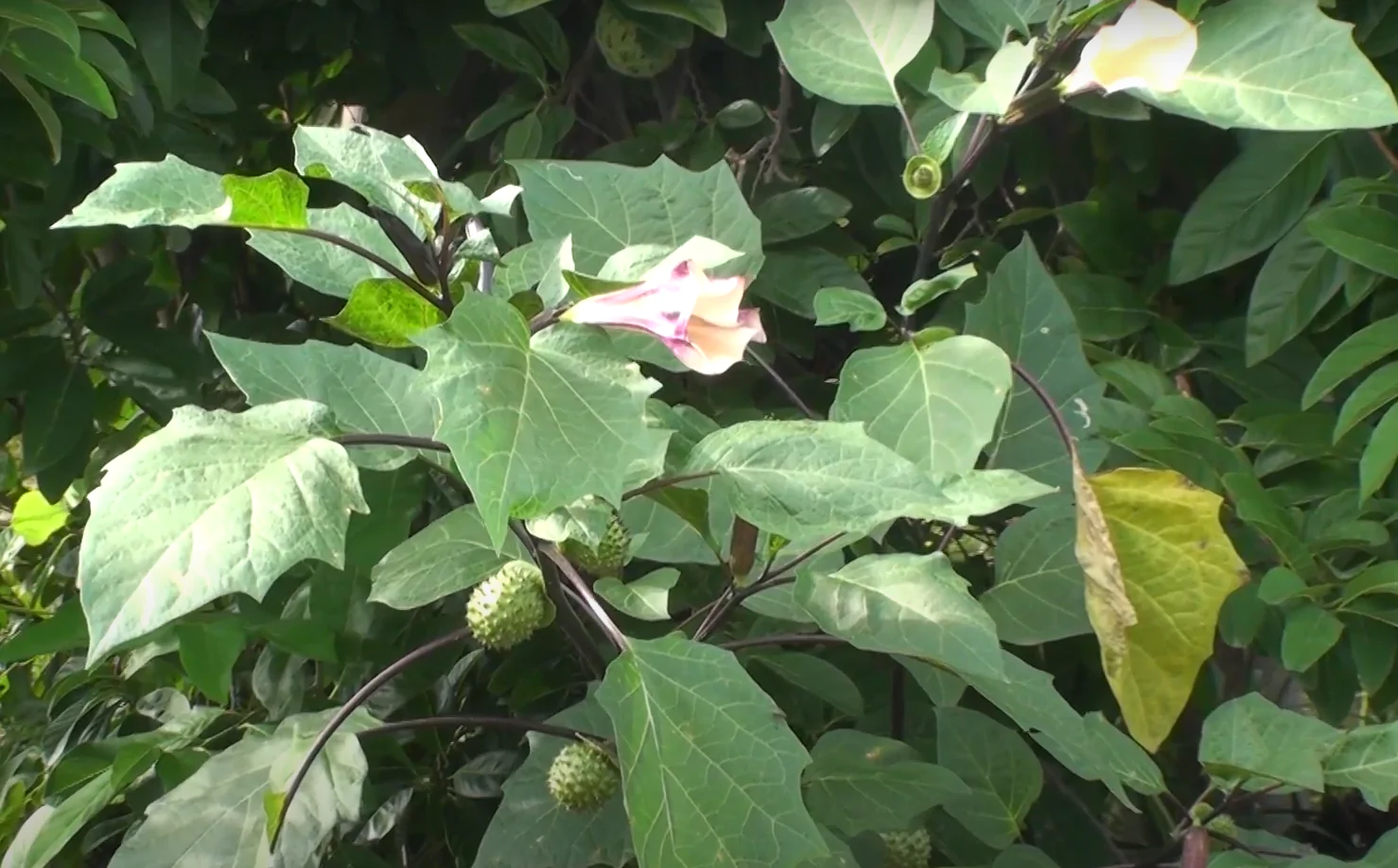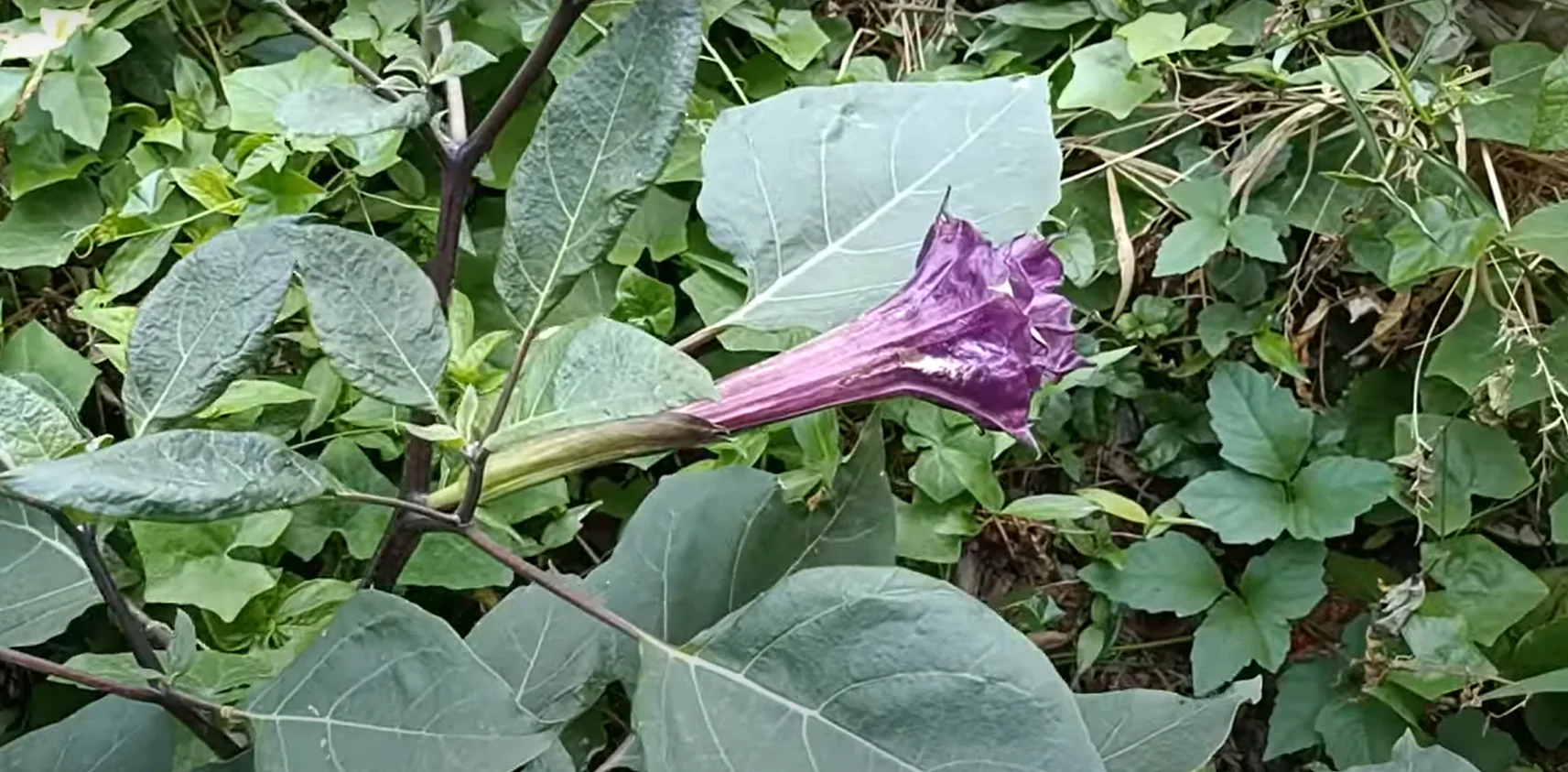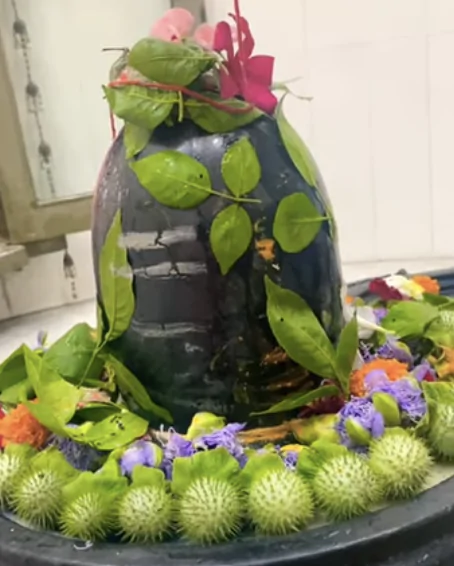Exploring Datura: A Risky Yet Intriguing Natural Hallucinogen

You may have heard whispers about a mysterious plant with potent psychoactive properties. Datura, also known as jimsonweed or devil’s snare, has captivated and terrified humans for centuries. This intriguing yet dangerous natural hallucinogen holds a unique place in folklore, medicine, and counterculture. As you explore the secrets of datura, you’ll discover its rich history, powerful effects, and significant risks. While alluring to some, datura demands the utmost respect and caution. This article will take you on a journey through the fascinating world of this enigmatic plant, shedding light on its cultural significance and potential consequences.
What is Datura?
Datura, often referred to as “jimsonweed”, “ThornApple” or “devil’s snare,” is a genus of flowering plants belonging to the nightshade family, Solanaceae. This intriguing yet potentially dangerous plant has captured the attention of botanists, herbalists, and thrill-seekers alike due to its potent hallucinogenic properties.
Botanical Characteristics
Native to warm and temperate regions worldwide, Datura plants are characterized by their large, trumpet-shaped flowers and spiny seed pods. The flowers, typically white or purple, emit a sweet fragrance that intensifies at night, attracting nocturnal pollinators. The plant’s leaves are broad and coarsely toothed, giving it a distinctive appearance in gardens and wild landscapes.
Chemical Composition
Datura contains a complex mixture of tropane alkaloids, including atropine, hyoscyamine, and scopolamine. These compounds are responsible for the plant’s psychoactive effects and have been utilized in traditional medicine practices for centuries. However, it’s crucial to note that the concentration of these alkaloids can vary significantly, making Datura extremely unpredictable and potentially lethal if ingested.
Cultural Significance
Throughout history, Datura has played a role in various cultural and religious practices. Indigenous communities in the Americas have used it in shamanic rituals, while in India, it’s associated with the god Shiva. Despite its cultural importance, the plant’s toxicity and unpredictable effects have led to its classification as a dangerous substance in many countries.
The History and Cultural Uses of Datura
Throughout history, Datura has played a significant role in various cultures, revered for its potent properties and spiritual associations. You’ll find that this enigmatic plant has been utilized for centuries in religious ceremonies, healing practices, and even as a tool for divination.
In ancient Greece, you would have encountered Datura’s influence at the famous Delphic oracle. Priestesses, known as Pythias, reportedly inhaled vapours from burning Datura seeds to induce prophetic visions. This practice allowed them to communicate with the gods and provide guidance to those seeking divine wisdom.
If you were to travel back in time to the Aztec civilization, you’d witness Datura’s dual purpose in their rituals. The Aztecs employed this powerful plant as a painkiller during religious ceremonies and as a narcotic for those chosen for sacrifice. Its ability to induce altered states of consciousness made it an integral part of their spiritual practices.
Across various cultures, you’d observe Datura being used for both medicinal and ceremonial purposes. Traditional healers have long recognized its potential to alleviate pain, treat respiratory conditions, and even address mental health issues. In ceremonial contexts, shamans and spiritual leaders have utilized Datura to facilitate vision quests, initiation rites, and communication with the spirit world.
It’s important to note that while Datura has a rich cultural history, its use carries significant risks due to its potent and potentially dangerous effects. Modern societies have largely abandoned its use due to safety concerns and the availability of safer alternatives.
Active Compounds in Datura and How They Work

Datura Fruit
Datura contains a potent cocktail of tropane alkaloids that are responsible for its hallucinogenic and toxic effects. The most abundant and active compounds in Datura are atropine (also known as hyoscyamine) and scopolamine (also called hyoscine). These alkaloids, along with other related compounds, comprise Datura’s active principle.
When ingested, these alkaloids act as anticholinergics, meaning they block the neurotransmitter acetylcholine in your body. This interference affects both the central and peripheral nervous systems. In the brain, it can lead to altered states of consciousness, hallucinations, and delirium. Peripherally, it can cause effects like dilated pupils, dry mouth, and increased heart rate.
It’s crucial to understand that the concentration of these compounds can vary significantly between different Datura plants and even within parts of the same plant. This unpredictability makes dosing extremely difficult and dangerous. The potency of these alkaloids means that even small variations in intake can lead to drastically different effects, ranging from mild intoxication to severe poisoning or death.
While Datura’s alkaloids are highly risky for recreational use, they have found applications in medicine. Scopolamine, for instance, is used in controlled doses to treat motion sickness and postoperative nausea. Atropine is utilized in some eye examinations and as an antidote for certain types of poisoning. However, these medical uses are carefully monitored and dosed, unlike uncontrolled consumption of the plant.
Datura or Jimsonweed is an invasive species
This intriguing plant, native to Central America, has spread far beyond its original habitat, causing ecological concerns in many regions.
Datura stramonium, commonly known as Jimsonweed or Thornapples, has become an aggressive invasive species in temperate and tropical climates worldwide. Its ability to thrive in diverse environments has led to its rapid proliferation across the Northern Hemisphere. You’ll find this plant encroaching on native ecosystems, outcompeting local flora, and disrupting natural habitats.
In Pennsylvania and many other states, Jimsonweed is classified as a noxious weed. This designation stems from its poisonous alkaloids, which pose significant risks to both humans and animals. As you encounter this plant, remember that its toxicity is a primary reason for its controlled status.
Ecological Impact
The invasive nature of Datura presents several challenges:
- Biodiversity loss: It outcompetes native plant species, reducing local biodiversity.
- Agricultural damage: Jimsonweed can contaminate crops and pastures, posing risks to livestock.
- Ecosystem disruption: Its rapid spread can alter soil composition and local wildlife habitats.
However, it’s essential to recognize its dual nature as both an intriguing hallucinogen and a problematic invasive species. Understanding these aspects will help you appreciate the complexity of this controversial plant and its impact on various ecosystems.
The Dangers and Risks of Using Datura
Datura, while intriguing, poses severe risks to your health and well-being. Understanding these dangers is crucial before considering any experimentation with this potent plant.
Datura contains highly toxic alkaloids, primarily scopolamine, atropine, and hyoscyamine. These compounds can cause severe poisoning, even in small doses. You may experience rapid heartbeat, hyperthermia, and respiratory failure. The narrow margin between an effective dose and a lethal one makes accidental overdose a significant risk.
The potency of Datura varies widely between plants and even different parts of the same plant. This unpredictability makes it impossible for you to gauge a safe dose. The effects can last for days, potentially leading to prolonged delirium and hospitalization. Repeated use of Datura may result in lasting cognitive impairment. You could experience memory loss, difficulty concentrating, and persistent visual disturbances. In some cases, these effects may be irreversible, significantly impacting your quality of life.
While Datura is not explicitly illegal in many jurisdictions, its use can lead to legal troubles. You may face charges related to public intoxication or endangerment. Additionally, actions taken while under the influence could result in serious legal consequences. Given these substantial risks, it’s strongly advised that you avoid experimenting with Datura. The potential for harm far outweighs any perceived benefits or curiosity about its effects.
Reported Experiences With Datura Trips
This experience are based on surveys carried out in selected areas of India where devotees of Lord Shiva (as they claim) consume a small amount of Datura.

“When you consume Datura (experimental strictly under lab conditions), you may encounter a range of intense and often unsettling experiences. Users frequently report vivid hallucinations that blur the line between reality and fantasy. These visions can be so convincing that you might find yourself interacting with imaginary people or objects as if they were real. You may experience significant changes in your perception of time and space. Hours might seem to pass in minutes, or vice versa. Your surroundings may appear distorted, with objects changing size or shape. Some users report seeing surfaces breathe or move in impossible ways.”
Physically, you might notice extreme dry mouth, dilated pupils, and blurred vision. Your body temperature may rise, and you could experience difficulty urinating. These symptoms can persist for days after ingestion. Datura can severely impair your cognitive functions. You may struggle with memory formation, often experiencing complete amnesia for the duration of the trip. Decision-making abilities and impulse control can be significantly compromised, leading to potentially dangerous behaviour.
Emotionally, you might cycle through intense feelings of euphoria, terror, and confusion. Many users report a sense of detachment from reality that can be both fascinating and deeply disturbing. It’s crucial to note that Datura experiences are highly unpredictable and can be extremely dangerous. The line between a recreational dose and a potentially fatal one is razor-thin, making Datura use exceptionally risky.
Legality and Availability of Datura Today
The legal status of Datura varies globally. In many countries, including the United States, Datura is not specifically prohibited by law. However, its use, possession, and distribution may fall under broader regulations concerning psychoactive substances. You should be aware that while the plant itself may not be illegal, extracting or processing its compounds for recreational use could violate controlled substance laws.
Despite its legal ambiguity, Datura remains widely available. You can often find Datura species growing wild in many parts of the world since it’s an invasive species. Additionally, seeds and plants are sold by some nurseries and online retailers for ornamental purposes. However, it’s crucial to note that cultivating Datura with the intent to use it as a drug may be illegal in your jurisdiction.
While Datura may be legally obtainable, its potential for harm cannot be overstated. You should approach this plant with extreme caution. Many experts strongly advise against its recreational use due to its unpredictable and potentially fatal effects. Remember, legal availability does not equate to safety. Always prioritize your health and well-being when considering any substance, particularly one as potent and variable as Datura.
Why Datura is offered to Hindu God Shiva?
In Hindu tradition, the offering of Datura to Lord Shiva is deeply rooted in mythology and symbolism. This practice carries profound spiritual significance for devotees and reflects important aspects of Hindu philosophy.
According to Hindu mythology, the Datura flower emerged from Lord Shiva’s chest during a pivotal moment. When the gods and demons churned the cosmic ocean to obtain the nectar of immortality, a deadly poison was also produced. To save the world, Shiva consumed this poison, turning his throat blue. As he bore this burden, the Datura flower blossomed from his chest, symbolizing his ability to transform toxicity into beauty.
When you offer Datura to Shiva, you’re engaging in a powerful act of surrender. This ritual represents the relinquishing of negativity, bitterness, and harmful emotions such as hatred and anger. By presenting the flower associated with Shiva’s own transformation, you’re symbolically entrusting your personal toxins to the deity, seeking purification and spiritual growth.
The act of offering Datura signifies your willingness to purge negativity from your life. Just as Shiva transmuted poison into something beneficial, this practice encourages you to transform your own negative qualities. It’s a reminder that even the most challenging aspects of life can be overcome and converted into opportunities for spiritual advancement.
By participating in this ancient ritual, you’re not only honouring Lord Shiva but also embarking on a personal journey of self-improvement and inner purification.
Cases of Datura or thornapple poisoning
You may be surprised to learn that Datura poisoning cases have been reported worldwide. In Romania, the first published case of severe voluntary Datura stramonium intoxication shocked medical professionals. This incident highlighted the potential dangers of misusing this plant for its hallucinogenic effects.
Another alarming case involved a family poisoning from herbal tea. The victims had consumed the beverage believing it had refreshing properties. However, it was later identified as Datura spp., underscoring the importance of proper plant identification before consumption.
The recent spinach crisis in Australia was caused by contamination with a toxic weed called thornapple (Datura stramonium), also known as jimsonweed. This vigorous-growing plant was accidentally harvested and packed alongside baby spinach by Riviera Farms in New South Wales. The entire thornapple plant, especially its seeds, is poisonous due to the presence of tropane alkaloids. Symptoms from consuming contaminated spinach included delirium, hallucinations, blurred vision, and confusion. Authorities have issued health warnings, urging residents not to seek out spinach products for recreational purposes. Around 190 people reported symptoms, with at least 42 seeking medical attention
Research has shown that even small amounts of Datura can lead to poisoning. In one instance, the estimated ingestion of just 10–15 mg of alkaloids from Datura stramonium tea caused significant toxicity. This emphasizes the potency of the plant’s active compounds and the narrow margin between a perceived “safe” dose and a potentially harmful one.
Symptoms and Consequences
You should be aware that Datura poisoning can manifest in various ways. Common symptoms include:
- Dilated pupils
- Dry mouth and skin
- Hyperthermia
- Tachycardia
- Confusion and delirium
In severe cases, poisoning can lead to respiratory failure, coma, or even death. The unpredictable nature of Datura’s effects makes it particularly dangerous for recreational use.
These documented cases serve as stark reminders of the risks associated with Datura consumption. They underscore the importance of education and awareness about this intriguing yet potentially lethal plant.
Peculiar history of Datura and ancient mentions in Hinduism

to Hindu God Shiva
Sacred Plant in Hindu Mythology
Datura, a powerful hallucinogenic plant, holds a significant place in Hindu mythology and ancient Indian traditions. You’ll find that this intoxicating herb has been revered for centuries, particularly in connection with Lord Shiva, one of the principal deities in Hinduism. According to the Vamana Purana, an ancient Hindu religious text, Datura is said to have sprung from the chest of Lord Shiva himself, imbuing it with divine significance.
Ritual Offerings and Spiritual Significance
In Hindu worship practices, you’ll observe that Datura flowers are often offered to Lord Shiva as a sacred tribute. This ritual offering symbolizes devotion and is believed to please the deity. The plant’s association with Shiva, known as the destroyer and transformer in the Hindu trinity, further emphasizes its potent and transformative nature.
Ayurvedic Applications
Beyond its mythological importance, you’ll discover that Datura has played a crucial role in Ayurveda, the traditional Indian system of medicine, for thousands of years. Ayurvedic practitioners have long recognized the plant’s medicinal properties, utilizing it in various formulations to treat ailments such as asthma, inflammation, and pain. However, it’s important to note that due to its highly toxic nature, the use of Datura in Ayurvedic medicine is strictly regulated and should only be administered under expert guidance.
Datura FAQ: Common Questions About This Controversial Plant
What is Datura?
Datura is a genus of flowering plants in the nightshade family. Known for its trumpet-shaped flowers and spiny seed pods, Datura has been used for centuries in traditional medicine and spiritual practices. However, it’s crucial to understand that all parts of the plant contain potent alkaloids, making it highly toxic and potentially lethal if ingested.
Is Datura legal?
The legal status of Datura varies by country and region. In many places, it’s legal to grow as an ornamental plant, but illegal to consume or distribute for psychoactive purposes. Always check your local laws before cultivating or possessing Datura.
What are the risks of using Datura?
Using Datura as a recreational drug is extremely dangerous. Its effects are unpredictable and can include severe hallucinations, delirium, and memory loss. Overdose is common and can lead to hospitalization or death. Additionally, the line between a “safe” dose and a lethal one is razor-thin, making it nearly impossible to use without significant risk.
Are there any medicinal uses for Datura?
While some traditional cultures have used Datura medicinally, modern medicine generally avoids it due to its toxicity and unpredictable effects. Some pharmaceutical compounds derived from Datura alkaloids are used in controlled medical settings, but these are highly purified and precisely dosed.
As you’ve learned, Datura is a fascinating yet extremely dangerous plant with a long history of use as a natural hallucinogen. While its powerful effects may seem alluring, the risks far outweigh any potential benefits. The unpredictable potency and severe side effects make Datura use extremely hazardous, even for experienced psychonauts. It’s best to appreciate this intriguing plant from a safe distance, studying its cultural significance and botanical properties without ingesting it. If you’re seeking altered states of consciousness, safer alternatives exist. Always prioritize your physical and mental wellbeing when exploring psychoactive substances. Datura serves as a potent reminder that nature’s most captivating offerings are often best admired rather than consumed.


